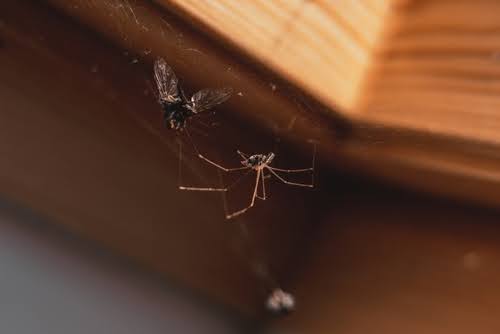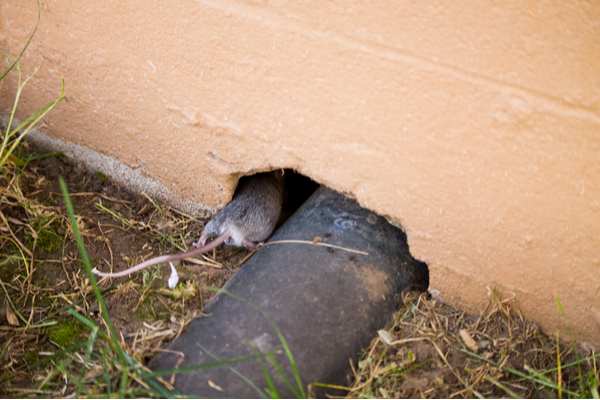Spiders are a common house pest. While most are harmless (with the exception of the brown recluse and black widow), they can still be unsettling to encounter. Whether you want to prevent the occasional spider or deal with a more significant infestation, there are several ways to keep spiders away.
In this blog, we'll discuss both DIY solutions and professional pest control options to ensure your home stays spider-free. We cover eight strategies you can implement to stop common house spiders from becoming a nuisance. However, if you’d like a professional consultation to identify where spiders are coming in and how to best eliminate the problem, contact the Plunkett’s team today.
8 Ways to Keep Spiders Out of Your Home
.png?r=7dKCvOLwwZQ=)
1. Seal Entry Points
The first step is to close the entries where spiders and other insects can enter your home. Spiders often find their way inside through small cracks and openings around windows, doors, and vents. Here's how to shut down these arachnid avenues:
- Check for Gaps: Inspect your home’s foundation, window frames, and door thresholds for gaps or cracks.
- Caulk Cracks: Use caulk to fill any cracks around windows and doors and other areas where spiders could enter.
- Install Weather Stripping: Adding weather stripping or door sweeps to doors can help block spiders and other pests from sneaking in.
- Repair Screens: If your windows have damaged screens, patch or replace them to prevent spiders from entering. Cover Vents and Utility Openings: Cover laundry and appliance vents with screens.
2. Vacuum Webs
Your vacuum cleaner is an easy way to remove spider webs and egg sacs without getting your hands dirty. By regularly vacuuming your home, you discourage spiders from setting down permanent roots or laying eggs that lead to more spiders. You also remove potential food sources like dead flies on the windowsill.
Spiders will eventually suffocate in a vacuum cleaner bag but might survive and escape a canister vacuum. Make sure you empty yours after each cleaning and remove the trash from your home.
3. Maintain a Clean Home
Spiders prefer dark, quiet areas with lots of clutter. Plus, they feed on other insects, so keeping your house free of the things that attract other pests means fewer spiders:
- Wipe Down Surfaces: Dust and clean hard-to-reach areas where spiders may build webs.
- Store Food Properly: Even though spiders don’t eat your food, pests like ants or flies can attract them. Keeping your food sealed and properly stored will minimize the spider’s food supply.
- Declutter: Basements, attics, and garages often accumulate clutter, making them ideal places for spiders to hide. Use sealed containers to store items and reduce spider-friendly spaces.
4. Keep a Tidy Yard
Fewer spiders in your yard means fewer spiders looking for a way into your house. Trim bushes, remove ivy and other vines, mow the lawn regularly, and remove leaf piles or wood stacks that could attract spiders. This eliminates the number of hiding spots where eight-legged families might grow.
5. Reduce Lighting
Spiders are attracted to light because it draws in other insects that they feed on. Reducing outdoor lighting or switching to different light sources can help:
- Use Yellow or Sodium Vapor Lights: These bulbs are less attractive to insects, which, in turn, discourages spiders from hanging around.
- Turn Off Unnecessary Lights: Reducing exterior lighting when not needed can help keep spiders away.
6. Use Natural Spider Repellent
If you prefer a natural approach, there are several DIY spider repellents you can use:
- Essential Oils: Spiders dislike the smell of certain essential oils, such as peppermint, eucalyptus, and tea tree oil. Mix a few drops with water and spray around windows, doors, and baseboards.
- Vinegar Spray: Combine equal parts white vinegar and water in a spray bottle. Spraying this mixture around entry points can help repel spiders.
7. Set Spider Traps
There are many over-the-counter spider traps available at your local hardware store. These sticky traps can help you catch and monitor spider activity in your home. They can also help a pest control professional identify the types of spiders coming into your home. Place them near baseboards, under furniture, and in other dark areas.
8. Call Plunkett’s
If you've tried the above methods and still have a spider problem, it may be time to call in a professional. Plunkett’s provides long-term solutions for keeping spiders and other pests out of your home. Here are ways we can help:
- Comprehensive Treatment: Our pest control experts identify the root causes of your spider problem and offer tailored solutions, including perimeter sprays and preventive measures.
- Peace of Mind: Our experts can inspect your home regularly to ensure spiders (and other pests) don’t return.
Get Rid of Spiders Today
Schedule your appointment with Plunkett’s today. Our team of experts can assess your home, provide comprehensive treatment, and offer continued peace of mind so you won’t worry about webbed intruders.








